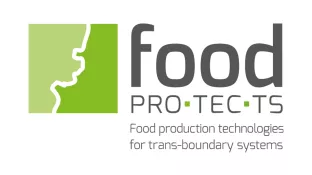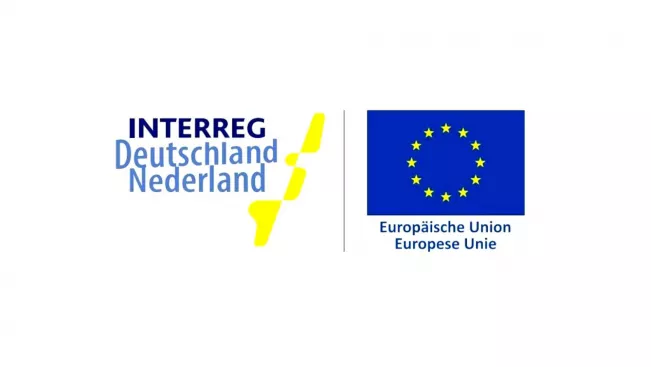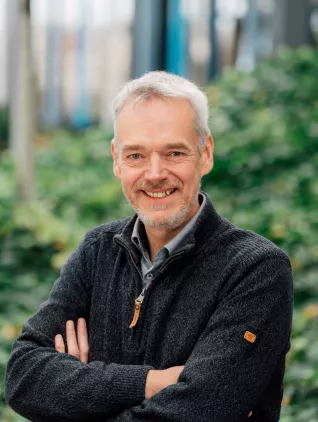Food Pro.tec.ts - Knowledge Transfer
Research project at a glance

Keywords
Departments and Instituts
Funding type
Period
01.07.2016 to 30.06.2020
Website
Project Description

Food Pro.tec.ts was developed to be able to bring high-class, technological innovations to the German-Dutch economic area. In the project, companies from both countries cooperate with innovation experts within different technology clusters with the aim of jointly developing new and novel technologies and learning how to use them. All technological products resulting from this project are, on the one hand, geared to the requirements of regional small and medium-sized enterprises (SMEs). On the other hand, they are intended to help secure and, if possible, further expand existing competitive advantages of the entire region compared to other locations worldwide. The project partners also want to make their personal contribution to the progress of the so-called agricultural turnaround. Modern society expects food to be produced and offered sustainably, regionally and in high quality.
The modern agricultural and food industry is expected to supply a rapidly growing global population with safe and healthy food. At the same time, it must not be neglected that consumer demands for variety, sustainability and quality of food are constantly increasing and changing at an ever faster pace in terms of their focus (e.g. resource efficiency, regionality, animal welfare, intolerances, veganism). The topic of effective use of available resources in particular has gained in importance in recent years. At the beginning of 2015, the United Nations redefined the requirements for modern agriculture and the food industry. Sustainable agriculture and resource-saving production methods have top priority. In this context, experts from the European Union also name further requirements for the agricultural and food sector that are relevant in the short term:
- The EU agri-food sector is increasingly losing ground on the global export market;
- The industry should play a stronger role in the prevention of pathogens and in the more efficient use of resources in food production;
- The price war is hurting SMEs in particular;
- The distance between producers and consumers is growing, as food scandals, among other things, are shaking consumer confidence.
Subproject TEIC 7
Knowledge transfer: exercises, training and knowledge transfer for consumers and users of new technologies
Objectives
The activities of the cross-sectional cluster together form the backbone for an essential goal of Food Pro.tec.ts: the cross-border market opening. The work packages in this final cluster therefore focus on the development of sustainability and CSR management, communication as well as education strategies in order to promote a common understanding of sustainability in the Rhine-Waal region. This is the basis for the development of trend-setting technologies and processes that meet the ecological, ethical, social and economic market requirements. Through these developments, the competitiveness of small and medium-sized enterprises (SMEs) in the agricultural and food industry in the Rhine-Waal region is secured in the long term. The reputation of the Rhine-Waal Region beyond regional borders as an attractive and sustainable business location is strengthened.
Measures
The focus is on initiating communication and dialogue between potential stakeholders (users, customers of the new products and society). Here, people are invited exclusively via the existing networks in the region (GIQS, AFC, GV, FV) and associations (LTO, DRV, WLV) to get to grips with the effects and functionalities of the new products. Based on the new products and the opportunities they open up, appropriate events (including trade fairs, expert discussions) in the core regions of the assisted area will ensure that entrepreneurs from both sides of the border can enter into dialogue with each other more quickly and easily in the future and thus also establish joint business relationships.
To this end, there will also be PR material in the form of websites, videos, technical articles, trade fair material, blogs, etc. to convey knowledge to customers, students, trainees, consumers. In this way, the products should be accepted in the market as quickly as possible and be ready for use.
From the point of view of the participating universities (Wageningen UR, Westfälische Wilhelms Universität Münster, Bonn Rhein-Sieg University of Applied Sciences, Rhine-Waal University of Applied Sciences), it is important to include the knowledge about the nature, use and effect of the processes and products developed in the project in the curriculum or to take it into account in further research. In addition to the corresponding (further) development of courses, further training offers for students, trainees as well as for specialists and managers are developed and implemented in this cluster.
Building on the multi-layered product innovations, the project promotes dialogue between stakeholders and within companies and tests various procedures and methods such as Design Thinking, Quality Function Deployment or the Business Model Canvas for the development of innovative business models and marketing systems. The results of the workshops are combined with other learning content of Education for Sustainability to create a further education format "Sustainability and Innovation Manager Food Systems".
In addition, consumers from the region will be targeted with events and information material to increase trust and awareness for regional food production. The acceptance of the new products is to be promoted and the effect on the production methods is to be communicated offensively so that consumers develop more understanding and enthusiasm for the agricultural and food industry in the Rhine-Waal region. Products from the region can then be bought not only with a clear conscience but also out of conviction.


